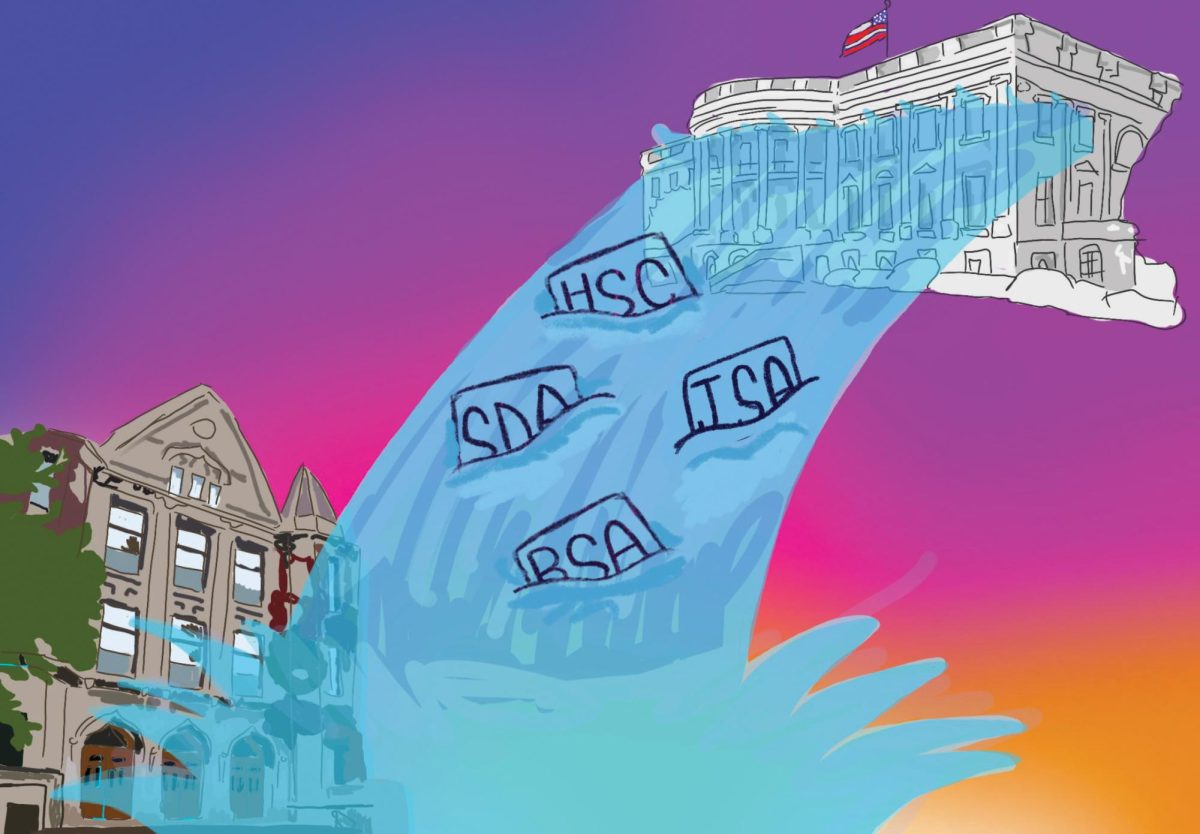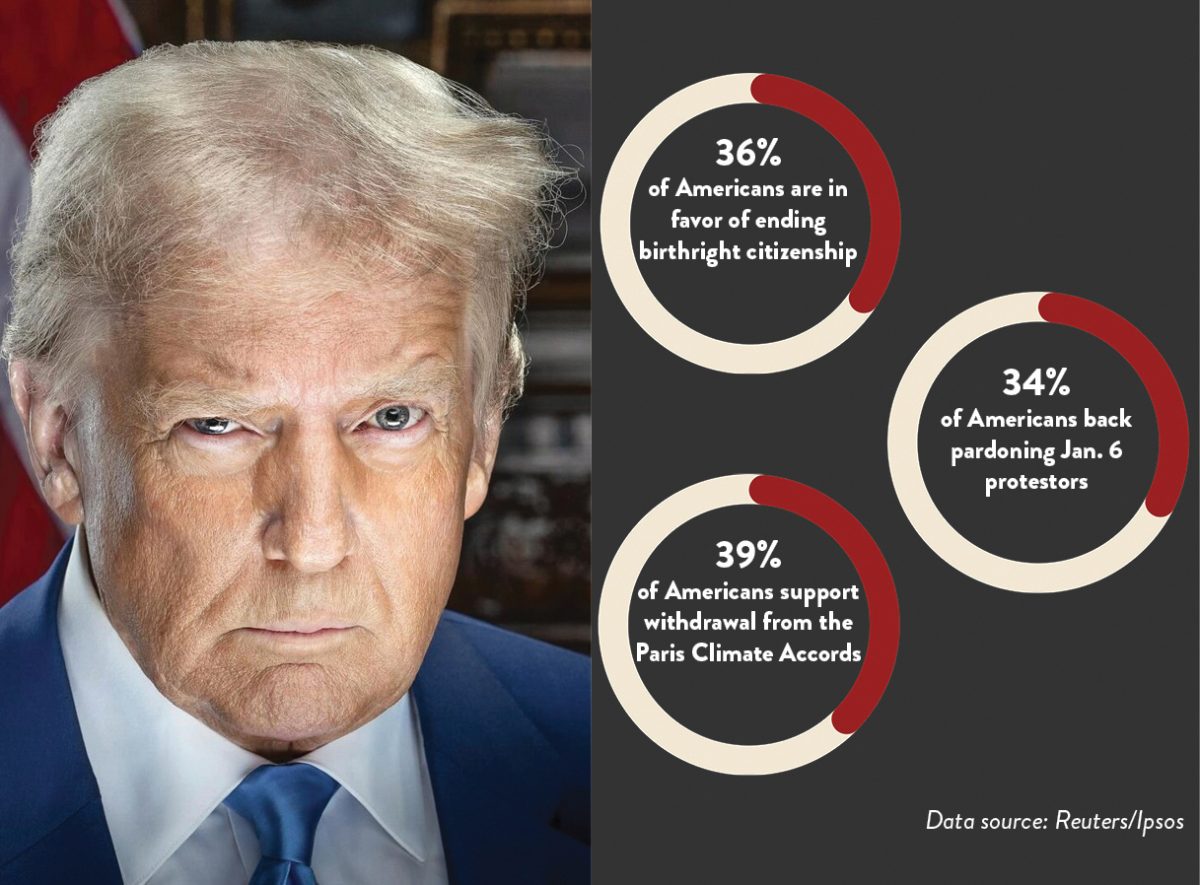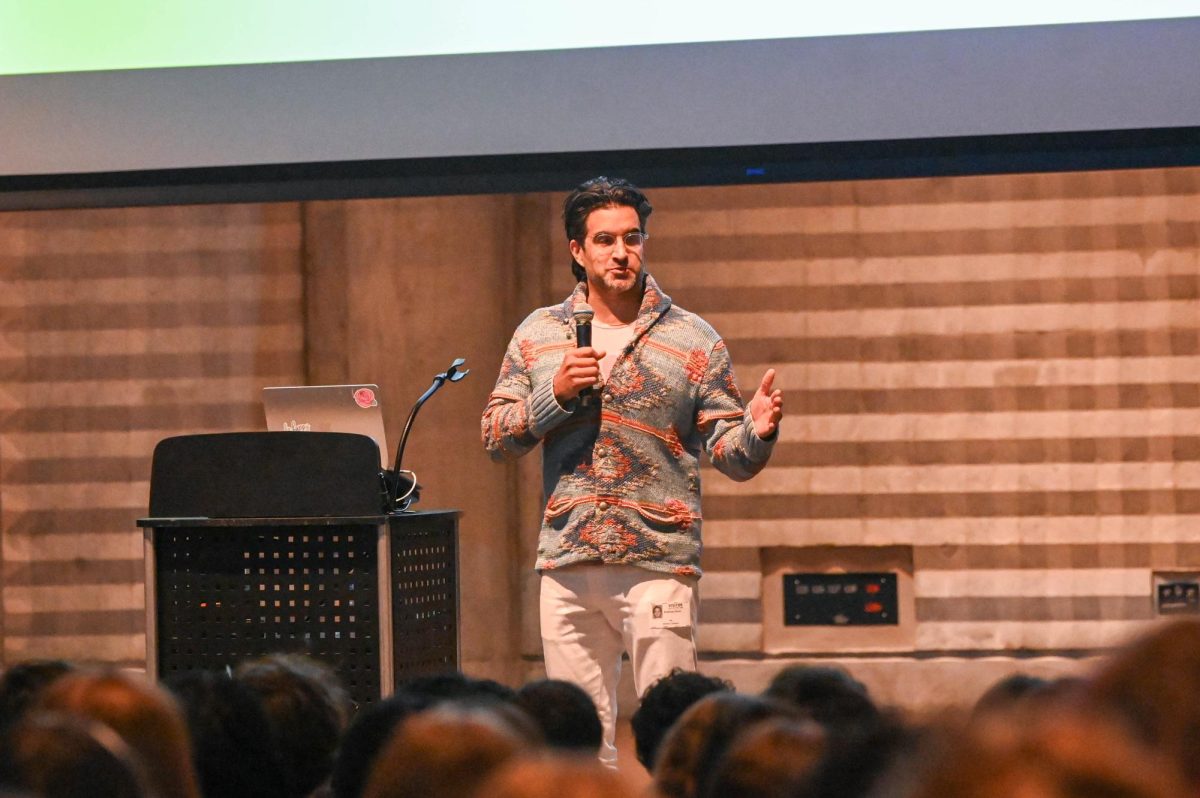Within one week of returning to the presidency, Donald Trump signed dozens of executive orders — from reducing the recognition of multiple genders to terminating DEI programs in the federal government — outpacing the 220 total orders he signed during his first term. U-High students’ reactions ranged from detachment and acceptance to fear and panic.
Due to the frequent number of news articles on Mr. Trump, ninth grader Paige Mattiello has decided to limit her exposure to the news. When Paige does read the news, she feels anxious.
“Every time I read something or see something, it just genuinely makes my heart [and] stomach drop,” Paige said.
Arjun Sawhney co-founded the Youth Engagement in Politics club to talk about topics like the impact of Mr. Trump’s policies through a nonpartisan lens. He thought it was hard to find in a student body that overwhelmingly supported Democrat Kamala Harris in November’s mock election: just 6.1% said they would vote for Donald Trump, while 91.2% would vote for Kamala Harris.
He said Mr. Trump was going back on his promises.
“He promised nonviolence,” Arjun said, “and said that under him, wars would be minimal and all of that, and then he immediately decided to essentially annex Greenland, change the names of many locations on maps, essentially infuriating other countries for no good reason.”
The swiftness of Mr. Trump’s actions startled sophomore Gio Nicolai. He was particularly anxious about Mr. Trump’s stand on immigration. An executive order titled “Protecting the American People Against Invasion” signed on Jan. 20 introduces criminal and civil penalties for migrants who do not register as undocumented, an increase in the hiring of U.S. Immigration and Customs Enforcement agents. Other actions include an end to temporary protections for migrants from Venezuela.
“The thing that really, kind of, worries me the most is how quickly he’s taken action on immigration,” Gio said.
Gio expressed concern about ICE arrests at schools and retaliatory tariffs Mr. Trump leveraged after Colombian President Gustavo Petro forbade planes carrying deported Colombian immigrants from landing in the country.
Paige feels Mr. Trump’s second term feels more dire.
“I think when I was younger there were more jokes about it,” Paige said. “There was the Lorax song that’s ‘Let It Grow’ and I saw a remix of it that was ‘Build A Wall.’ It just seems a lot more real this time, and there’s a lot more being done.”
Junior Ishie Holz fears the impact these orders will have on not just the United States but also the world. He also fears the Trump administration’s actions regarding climate change, and also noted the executive order proclaiming the government will only “recognize two sexes, male and female.”
“I was certainly surprised just by how many executive orders were signed so quickly, and my attention was caught most by the climate-related ones, especially the pulling out of the Paris Agreement,” Ishie said. “I was also shocked by the new ‘two gender’ policy. I had thought that his response to Democrats along that front was gonna be a lot less brash and aggressive than it was.”
Before the election, junior Ty Quiles had heard about Project 2025, a political blueprint published by a conservative think tank, but he could not believe the extremist ideas would be implemented. Though Mr. Trump denied knowing about the plan, many of his executive orders have aligned with Project 2025’s goals.
Ty fears the next four years given Mr. Trump’s unpredictable nature and decisions that impact countless communities.
“As a Puerto Rican, I am just offended by the thing I hear him doing, and it just makes me sad that people have to experience any cruelty with regards to removal from their home,” Ty said. “The reproductive rights issues were also a big shocker because I am pro-choice more in the sense that people should be able to decide for themselves what they get to do with their own body, and no one else but them should be in that decision.”
Among the executive orders dealing with these issues, there are also many others: ending diversity, equity and inclusion programs, freezing federal funding and imposing tariffs on Canada, Mexico and China.
Ishie said, “I think our community is very lucky to be in a position where most of us have the means and support network to manage whatever harm this may cause us, but I think most of America, not to mention the world, is in real trouble.”





















































